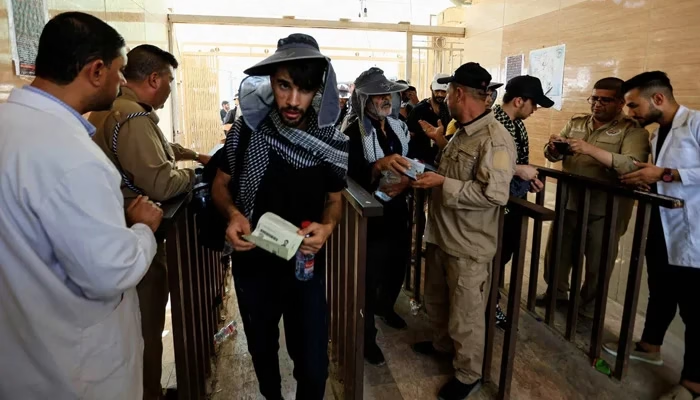In a revelation by Pakistani authorities through the Ministry of Interior, it has come to light that Afghanistan’s Interior Minister, Sarajuddin Haqqani, is among thousands of Afghan citizens listed with recent or past Pakistani passports. These passports, issued from various cities in Khyber Pakhtunkhwa, Balochistan, and Sindh, were granted to Haqqani for a duration of five years, primarily for his travel to several countries, notably Qatar.
Haqqani’s passport issuance was facilitated during the tenure of the Pakistan Tehreek-e-Insaf (PTI) government, allowing him to engage in negotiations with the U.S. government. These talks ultimately led to the Doha Agreement, enabling the withdrawal of U.S. forces from Afghanistan.
Two officials responsible for issuing the passport to Haqqani have been apprehended, one of whom was retired at the time of the investigation. It has been revealed that around thirty to forty thousand passports have been blocked, belonging to Afghan citizens involved in similar irregularities.
Afghan citizens were issued passports through passport offices in various cities, including Karachi and Thatta in Sindh, without mentioning specific cities in Balochistan and Khyber Pakhtunkhwa.
In a surprising turn of events, a journalist present on the same flight as Haqqani to Doha discovered that Haqqani presented a Pakistani passport as a travel document at immigration. This revelation raised questions about how Haqqani was issued a passport, a matter that was initially brought to the attention of Pakistani authorities in August. Subsequent investigations corroborated the journalist’s information, revealing that the passport was issued during the PTI government’s term in Peshawar.
A journalist from Peshawar, maintaining connections in Peshawar, brought the matter to light. The journalist, who was also on the same flight as Haqqani, had initiated inquiries about the authenticity of the passport during a conversation with Pakistani passport authorities. The journalist’s information turned out to be accurate, leading to an inquiry and subsequent action against the officers involved in issuing the passport.
Both the officer who issued the passport and the employee responsible for passport printing are currently in custody. Saudi authorities, initially engaged in discussions with the Pakistani government regarding this case, have been informed about the situation, confirming that both individuals are in jail.
Saudi authorities had initially raised the issue with the Pakistani government, indicating that Afghan citizens had obtained Pakistani passports for employment in Saudi Arabia. Saudi authorities provided assistance in tracking these passports. After further investigations, it was revealed that over 12,000 cases of similar nature existed, leading to the revocation of passports and the issuance of Afghan deportations.
This revelation underscores the complexity of passport irregularities and raises questions about the thoroughness of the passport issuance process during the specified period, particularly concerning high-profile individuals like Sarajuddin Haqqani.



